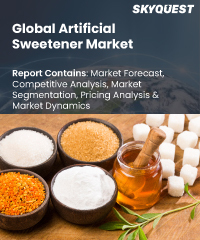
Product ID: SQMIG30C2096

Report ID:
SQMIG30C2096 |
Region:
Global |
Published Date: February, 2024
Pages:
261
|
Tables:
95 |
Figures:
76
North America dominated the global market, which holds a substantial market share and continues to lead in terms of consumption and production of artificial sweeteners. The region's strong market presence can be attributed to factors such as the high prevalence of lifestyle diseases like obesity and diabetes, as well as a growing health-conscious population. The market share of North America in the global artificial sweetener market is estimated to be around 38.9%.
Asia-Pacific is showcasing remarkable growth and emerging as a key market for artificial sweeteners. The Asia-Pacific region is witnessing a surge in demand for low-calorie sweeteners due to increasing health awareness, changing dietary preferences, and a rising middle-class population with higher disposable income. This region offers immense growth potential, fueled by countries like China and India, which have large consumer bases and a growing focus on health and wellness. The Asia-Pacific market for artificial sweeteners is expected to grow at a CAGR of over 5.8% during the forecast period.
Our industry expert will work with you to provide you with customized data in a short amount of time.
REQUEST FREE CUSTOMIZATIONWant to customize this report? This report can be personalized according to your needs. Our analysts and industry experts will work directly with you to understand your requirements and provide you with customized data in a short amount of time. We offer $1000 worth of FREE customization at the time of purchase.

Product ID: SQMIG30C2096